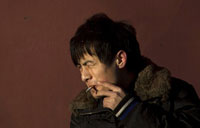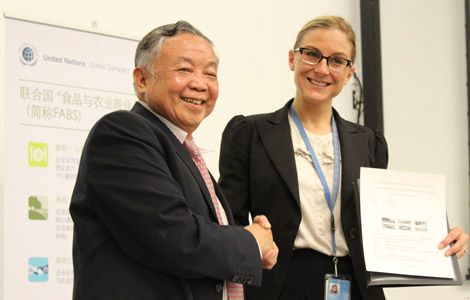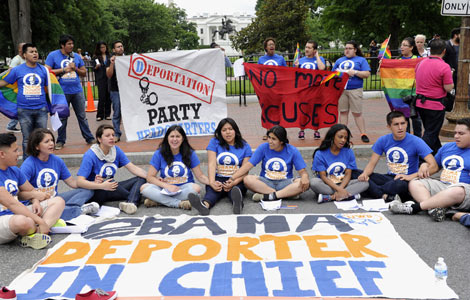Comprehensive ban sought on tobacco ads, promotion
Updated: 2014-06-10 07:54
By Shan Juan (China Daily)
|
||||||||
|
|
|
|
|
|
In the publicized draft amendment to the current law, which took effect in early 1995, media including radio, TV, movies, newspapers, websites and magazines are banned from advertising tobacco products.
"That leaves loopholes for the tobacco industry sneaking into emerging new media platforms like WeChat," said Liang Xiaofeng, deputy director of the Chinese Center for Disease Control and Prevention, on Monday.
Other new forms of advertising include napkin boxes in restaurants, playing cards and seat covers in airplanes.
Wu Yiqun, deputy director of Think Tank, an NGO that is committed to greater controls on tobacco and smoking, agreed with the call for a comprehensive ban. "The method of listing media platforms should be abandoned. Instead, all forms of tobacco advertising should be banned in the new version of the law," Wu said.
That's in line with the WHO Framework Convention on Tobacco Control, which took effect in China in 2006 after the government ratified it in 2003, Wu said.
The convention requires a comprehensive ban on all tobacco advertising, promotion and sponsorship. It also demands signatory countries to introduce legislation to ensure the implementation of the convention's legal obligations.
However, in China's current draft amendment, "the ban is somewhat partial", Wu noted.
Tobacco advertising is not banned in public areas such as shopping malls, supermarkets, Internet bars and public restrooms, she added.
So the tobacco industry is "intruding into these places", she said, citing tobacco product retailers in particular.
"They do a lot of on-site promotions like new product tasting," she said.
That is not covered in the draft amendment at all, said Xu Guihua, deputy director of the Chinese Association on Tobacco Control.
A recent survey conducted by China CDC found that nearly 49 percent of Chinese students ages 13 to 15 reported having seen tobacco advertisements in recent months.
Additionally, 2 percent said they have received free cigarettes distributed by tobacco companies, mostly at retailers, the CDC said.
Xu noted that so far, 41 countries worldwide had introduced an advertising and promotion ban for tobacco retailers.
Liang Xiaofeng said: "Young people are particularly susceptible to tobacco advertising. Therefore, banning tobacco advertising helps prevent the young from taking up smoking."
A study conducted in 22 countries indicated that a comprehensive advertising ban would help reduce tobacco consumption by at least 6.3 percent.
shanjuan@chinadaily.com.cn
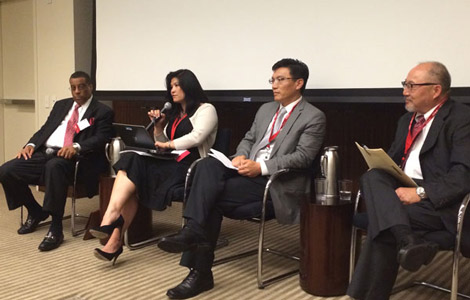
 Asian Americans see moving up US corporate ladder as difficult
Asian Americans see moving up US corporate ladder as difficult
 Expat's experiment turns into anti-pollution business
Expat's experiment turns into anti-pollution business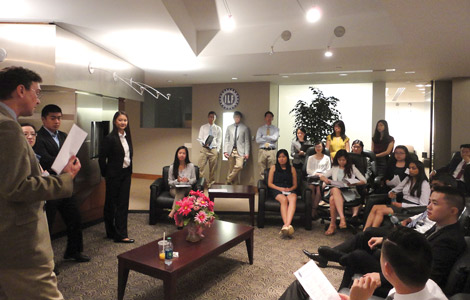
 Youths begin Internships
Youths begin Internships
 Qingdao native aims to make sailing history
Qingdao native aims to make sailing history
 History-making game recalled
History-making game recalled
 Peking Opera charms New York City
Peking Opera charms New York City
 CUAA hosts basketball tournament in NYC
CUAA hosts basketball tournament in NYC
 Brazil ready to help China score
Brazil ready to help China score
Most Viewed
Editor's Picks

|

|

|

|

|

|
Today's Top News
Virginia's governor deepens China ties
Experts take aim at 'biased' Pentagon report on China
Baidu gets ex-Google scientist Ng in race for AI research
Miss Nevada Nia Sanchez crowned as 63rd Miss USA
Chinese navy to join 2014 RIMPAC naval drill
5 dead in Las Vegas shooting
Bergdahl says he was tortured
China's exports rebound in May
US Weekly

|

|
